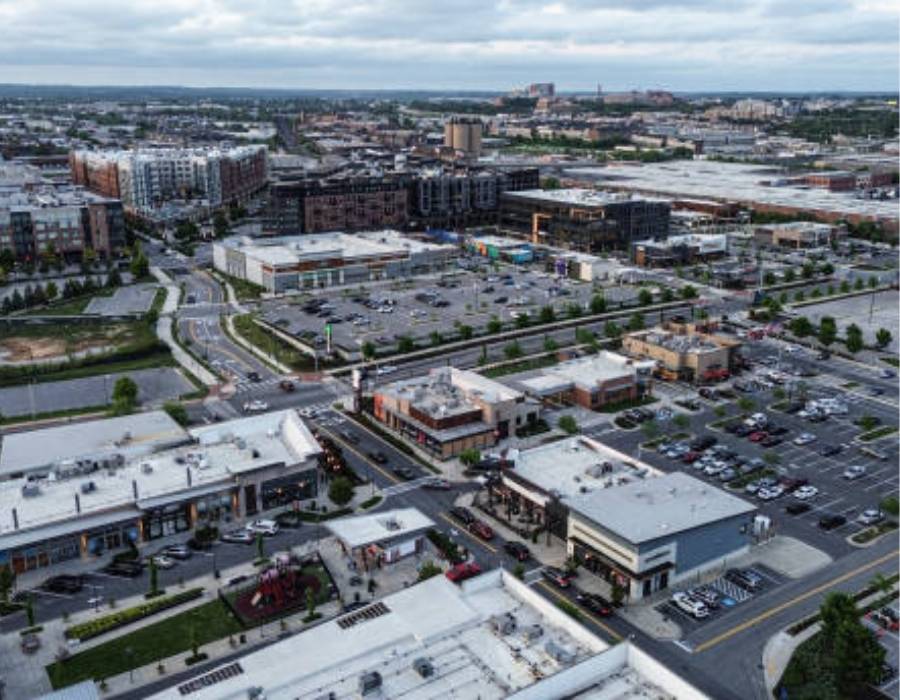Commercial Roofing in Baltimore: Choosing Materials That Meet City Building Codes
When it comes to installing or replacing a commercial roof in Baltimore, property owners face more than just the challenge of picking the right material. Every decision must also align with the city’s building regulations. Baltimore enforces strict standards to ensure safety, durability, and energy efficiency. That means not every system on the market will qualify.
If you’re considering commercial roofing Baltimore businesses can rely on, understanding local building codes is the first step. This guide explains the key code requirements, highlights the best roofing materials for compliance, and shares why working with local contractors is essential.
Understanding Baltimore’s Building Code Requirements
The Baltimore building code roof standards are influenced by the International Building Code (IBC) with amendments specific to the city. They cover structural integrity, fire safety, energy efficiency, and weather resistance.
Key Code Considerations for Commercial Roofs:
- Wind Resistance: Roofing must withstand strong gusts common during coastal storms.
- Fire Rating: Materials must meet minimum Class A or B ratings depending on the building type.
- Energy Efficiency: Reflective or “cool roof” standards are often required to reduce urban heat effects.
- Load Requirements: Roofs must handle snow and ice accumulation, especially in flat systems.
- Drainage: Adequate slope or drainage design is mandatory to prevent ponding water.
- Environmental Regulations: Some areas encourage sustainable materials and limit harmful runoff.
Failing to comply can result in fines, failed inspections, or costly rework, making code knowledge critical for every commercial roofing Baltimore project.
Best Roofing Materials for Baltimore Compliance
1. TPO (Thermoplastic Polyolefin) Roofing
TPO has become one of the most popular commercial roofing systems in Baltimore, especially for flat and low-slope buildings. Its highly reflective surface helps meet modern energy codes, while its lightweight, flexible design performs well through the city’s humid summers and freeze-thaw winters. Affordable and durable, TPO is a cost-effective choice for retail centers, warehouses, and office buildings.
2. PVC (Polyvinyl Chloride) Roofing
PVC roofing stands out in Baltimore for its ability to perform under demanding conditions. Fire-resistant and highly reflective, it supports energy efficiency while welded seams provide exceptional waterproofing against the city’s heavy rainfall. Its chemical resistance makes it ideal for restaurants, food facilities, and industrial properties where grease or pollutants are common challenges.
3. EPDM (Ethylene Propylene Diene Monomer) Roofing
EPDM, often referred to as rubber roofing, remains a trusted solution for commercial properties across Baltimore. Recognized for fire safety and its long service life, it adapts well to both hot summers and freezing winters. With a lower upfront cost compared to PVC, EPDM is particularly well suited for schools, office complexes, and other projects where budget is a key consideration.
4. Metal Roofing
Metal roofing continues to gain popularity in Baltimore for its strength, sustainability, and long lifespan. Offering a Class A fire rating and the ability to withstand winds up to 140 mph, it is especially valuable in storm-prone areas. Many systems are made from recycled materials, helping businesses meet environmental goals while maintaining a modern, high-visibility appearance—ideal for industrial facilities and multi-use buildings.
5. Modified Bitumen Roofing
Modified bitumen remains a reliable choice for Baltimore’s older commercial structures. This asphalt-based system meets fire and load-bearing code requirements while providing excellent durability against foot traffic. With the addition of reflective coatings, modified bitumen can also achieve compliance with cool roof energy standards, making it a practical option for small businesses, multifamily residences, and aging properties in need of cost-conscious solutions.
Why Baltimore’s Climate Matters
Even when code requirements are met, local climate conditions affect material performance. Baltimore experiences:
- Hot, humid summers: Require reflective roofing to lower cooling costs.
- Heavy rainfall & storms: Demand waterproof systems with reliable drainage.
- Winter freeze-thaw cycles: Test flexibility and seam integrity.
- Coastal influences: Salt air exposure can accelerate corrosion in metal roofs without protective coatings.
The best commercial roofing Baltimore systems not only comply with codes but also adapt to these weather challenges.
Role of Local Contractors
Navigating the Baltimore building code roof standards is not something property owners should do alone. Local contractors offer several advantages:
- Code Knowledge: Familiar with city-specific amendments and inspection processes.
- Permit Handling: Manage paperwork and scheduling with Baltimore’s building department.
- Experience with Local Climate: Recommend materials proven to perform in Maryland’s conditions.
- Warranty Protection: Ensure manufacturer and workmanship warranties remain valid through proper installation.
Hiring out-of-state or inexperienced roofers often leads to compliance issues, delays, or failed inspections.
Insurance and Warranty Considerations
Meeting Baltimore’s roofing codes also impacts insurance and warranty coverage:
- Insurance Approval: Non-compliant systems may not qualify for full coverage.
- Premium Discounts: Some insurers reduce premiums for energy-efficient or impact-resistant roofing.
- Manufacturer Warranties: Often require code-compliant installation to remain valid.
When evaluating commercial roofing Baltimore options, always confirm how choices align with insurance requirements.
Case Example: Baltimore Office Building
A downtown Baltimore office complex struggling with rising cooling costs and an aging EPDM roof partnered with a local contractor to install a reflective PVC system. The new roof not only met the city’s cool roof energy code requirements but also qualified for utility rebates, cut energy bills by nearly 20% in the first year, and passed inspections without issue—showing how the right material and contractor can make compliance both cost-effective and profitable.
Staying Compliant, Protected, and Profitable with Baltimore Roofing Standards

For commercial property owners, roofing is not just about durability—it’s about meeting regulations that protect your building and its occupants. The Baltimore building code roof standards demand attention to fire safety, wind resistance, energy efficiency, and drainage.
By choosing proven materials like TPO, PVC, metal, or modified bitumen—and by working with experienced local contractors—you ensure both compliance and performance. Ultimately, investing in commercial roofing Baltimore experts trust means fewer headaches, lower operating costs, and peace of mind knowing your property meets the city’s strict requirements.

